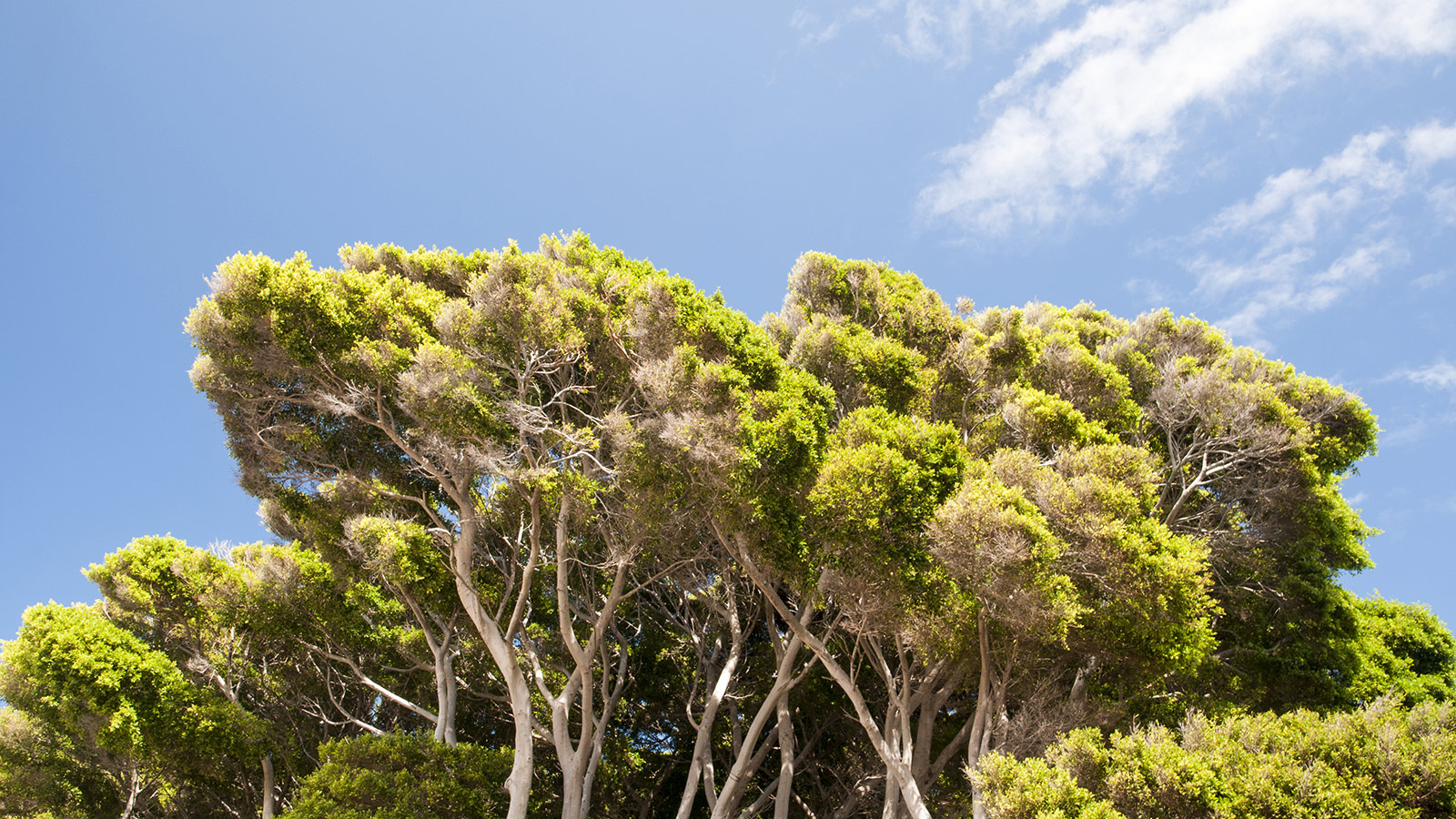Scientists have long expected extra carbon dioxide in the atmosphere to boost tree growth — the climate-changing waste product of our fuel-burning ways is plant food, after all. But a new study suggests that trees in tropical rainforests around the world are not in fact growing any faster, even as CO2 levels in the air shoot past 400 parts per million.
This conclusion isn’t just bad news for trees, though. All species threatened by climate change — that’s you, humans — should be worried.
You see, increased growth of the carbon-sucking vacuum cleaners that populate forests would mean that, all else equal, trees would remove more CO2 from the atmosphere. Researchers rightly anticipate this response to slow down the buildup of CO2, thus feathering the brakes on global warming.
But Peter van der Sleen, of Wageningen University in the Netherlands, and a team of Dutch researchers examined 150 years’ worth of tree rings in 1,109 trees of 12 species across Bolivia, Thailand, and Cameroon, and couldn’t find any evidence for CO2-accelerated tree growth — a phenomenon that the scientific community had widely held to be true.
“It was very surprising,” said van der Sleen in a recent article by The Guardian. “The results call into question whether tropical forests are carbon sinks.”
Those are big words from a sober scientist, but the verdict isn’t in just yet. Really, this research is just another perplexing piece of evidence in a puzzle that science is still putting together.
Previous studies show that elevated CO2 levels are increasing tree population density, suggesting that rainforests can soak up some excess carbon with additional trees instead of faster-growing trees.
Maybe the elder statesmen of the forest are sharing the extra CO2 with younger trees instead of using it to speed up their own growth. Upcoming experiments in Brazil will try to figure out if that’s the case by flooding sections of rainforest with CO2 and tracking how tree growth rates are affected, according to The Guardian.
If it becomes apparent that trees actually do spread the carbon love to their arboreal communities, instead of sucking up all the C02 for individual growth, then maybe we should learn a lesson about resource-sharing from our friends in the forests.



